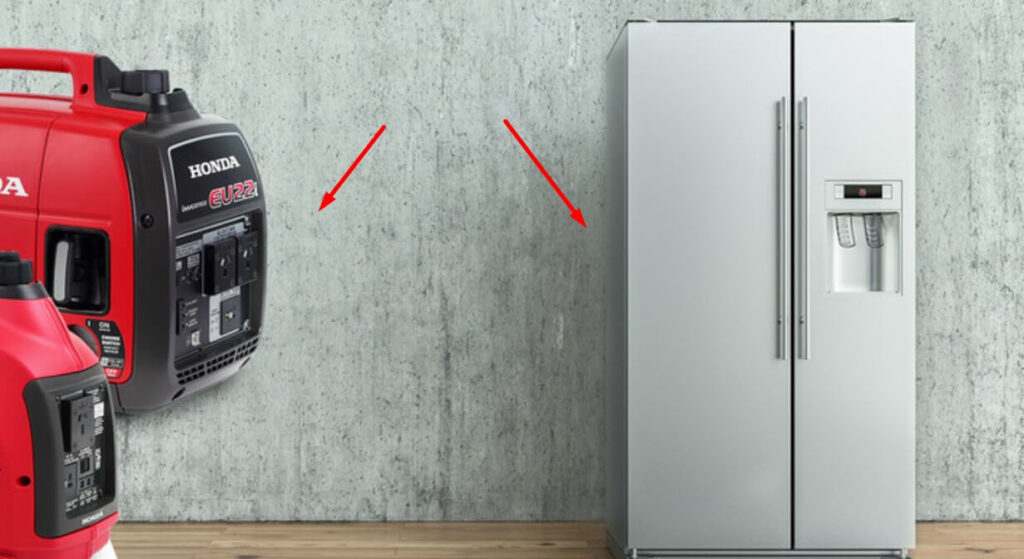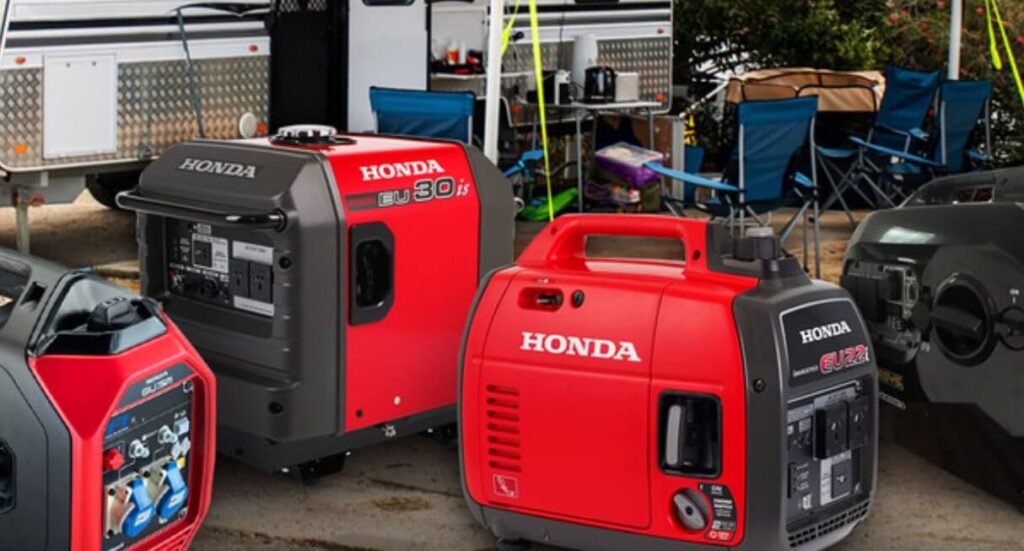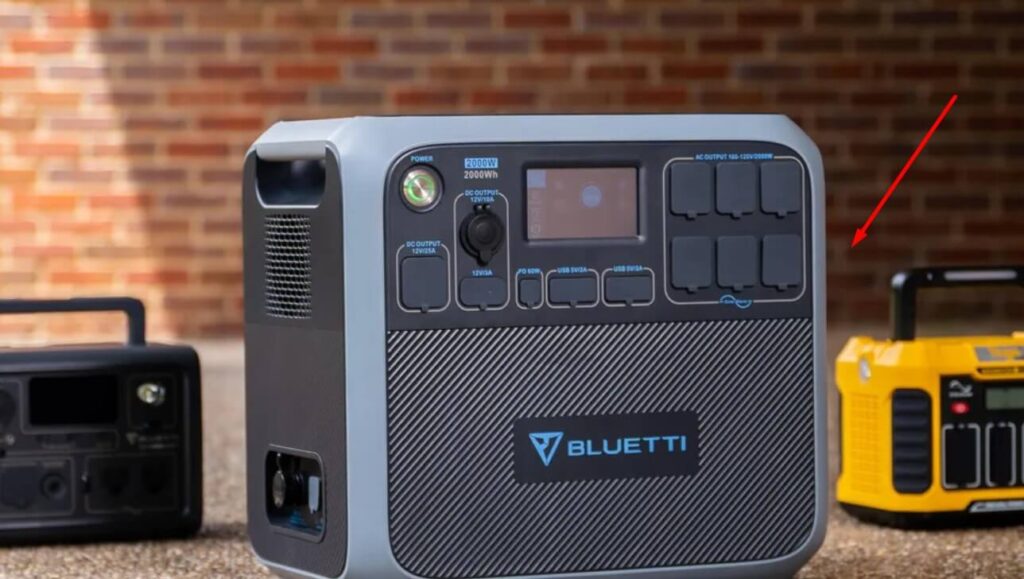A refrigerator typically requires around 100 to 600 watts to run efficiently. Now let’s delve into the specifics of how much power a refrigerator consumes and the factors that affect its energy consumption.
We will explore the average wattage required to run a refrigerator, the impact of various features and usage patterns on its power consumption, and ways to minimize energy usage and optimize efficiency. Understanding the power requirements of your refrigerator can help you make informed choices about energy consumption and potentially reduce your electricity bills.
So, let’s dive into the world of refrigerator power and watts!

Understanding The Power Consumption Of A Refrigerator
Understanding the power consumption of a refrigerator is essential when considering the number of watts needed to run it efficiently. By being aware of this information, you can make informed decisions about energy usage and better manage your electricity consumption.
Refrigerators are essential appliances in most households, keeping our food fresh by maintaining a cool temperature. However, have you ever wondered how much electricity your refrigerator consumes? Understanding the power consumption of a refrigerator is crucial for managing your energy usage and reducing your electricity bills.
In this section, we will explore the factors that affect power consumption and learn how to determine the wattage of your refrigerator.
Factors Affecting Power Consumption:
- Age and efficiency: Older refrigerators tend to consume more energy compared to newer models that come with energy-efficient features such as improved insulation and advanced compressors.
- Size and capacity: Larger refrigerators generally consume more power because they require more energy to cool a larger volume of air. Similarly, refrigerators with additional features, such as ice makers and water dispensers, may consume more electricity.
- Usage and temperature settings: The frequency of opening and closing the refrigerator door and the temperature settings impact power consumption. Keeping the door open for extended periods or setting the temperature too low can increase energy usage.
- Location and climate: The climate in your region can affect how hard your refrigerator needs to work to maintain the desired temperature. If you live in a hot climate, your refrigerator may consume more energy to keep the contents cool.
- Maintenance and cleaning: Regular maintenance, such as cleaning the condenser coils, can improve the efficiency of your refrigerator. Dust and grime accumulation on the coils can cause the appliance to work harder and consume more energy.
Determining the wattage of your refrigerator:
To determine the wattage of your refrigerator, you can follow these steps:
- Check the label or user manual: The wattage information is usually provided on the label affixed to the refrigerator or in the user manual. Look for terms like “power consumption” or “wattage rating.”
- Use a wattage meter: If the information is not readily available, you can use a wattage meter to measure the power consumption of your refrigerator. Simply plug the meter into the socket and then plug the refrigerator into the meter. It will display the amount of power being consumed.
- Multiply voltage and amperage: If you have access to the voltage and amperage ratings of your refrigerator, you can multiply them to determine the wattage. The formula to calculate wattage is: watts = volts x amps.
Understanding the power consumption of your refrigerator allows you to make informed decisions about managing your energy usage. By considering the factors that affect power consumption and determining the wattage of your refrigerator, you can take steps to minimize energy consumption, save money, and contribute to a greener environment.
Average Wattage Of Different Types Of Refrigerators
Different types of refrigerators have different average wattages to run efficiently. It is important to check the wattage of your specific refrigerator model to ensure it is compatible with your electricity capacity.
Refrigerators are common household appliances that consume electricity to keep our food fresh and chilled. The average wattage of a refrigerator varies depending on its type and size. Let’s explore the average wattage of different types of refrigerators:
Compact Refrigerators
- Compact refrigerators are smaller in size and are commonly used in dormitories, offices, or as extra storage.
- The average wattage of a compact refrigerator ranges between 85 to 120 watts.
- These refrigerators usually have a capacity of less than 10 cubic feet and are designed for limited storage needs.
- They are energy-efficient options for smaller spaces, consuming less electricity compared to full-size refrigerators.
Full-Size Refrigerators
- Full-size refrigerators are larger and commonly found in most households.
- The average wattage of a full-size refrigerator ranges between 100 to 800 watts, depending on the model and features.
- These refrigerators typically have a capacity of more than 10 cubic feet and come with various compartments for different types of food storage.
- The energy consumption of full-size refrigerators may vary based on factors such as insulation, age, and energy-saving features.
Energy Star Certified Refrigerators
- Energy star certified refrigerators are designed to be highly energy-efficient and reduce electricity consumption.
- These refrigerators meet strict energy efficiency standards set by the environmental protection agency (epa).
- The average wattage of an energy star certified refrigerator ranges between 60 to 700 watts, depending on the size and model.
- These refrigerators use advanced technologies such as improved insulation, efficient compressors, and adaptive defrosting to minimize energy usage.
- By choosing an energy star certified refrigerator, you can save on your electricity bills and contribute to a greener environment.
Calculating The Electricity Cost Of Running A Refrigerator
Calculating the electricity cost of running a refrigerator depends on its power consumption in watts. By determining the average wattage and multiplying it by the electricity rate, you can estimate the overall cost of running your refrigerator.
Calculating Daily, Monthly, And Yearly Energy Consumption
Calculating the energy consumption of your refrigerator is an important step in estimating the associated electricity cost. By understanding how much energy your refrigerator consumes on a daily, monthly, and yearly basis, you can make informed decisions about its usage and find ways to reduce energy consumption.
Here’s how you can calculate these values:
- Daily energy consumption: To calculate the daily energy consumption of your refrigerator, you need to know its wattage rating. This information can usually be found on the appliance label or in the user manual. Once you have the wattage rating, follow these steps:
- Determine the number of hours your refrigerator operates in a day. Typically, refrigerators operate around 8 to 10 hours per day.
- Use the formula: Daily energy consumption (kwh) = wattage (w) x operating hours (hr)/1000
- For example, if your refrigerator has a wattage rating of 150 and operates for 8 hours a day, the daily energy consumption would be (150 x 8)/1000 = 1.2 kwh.
- Monthly energy consumption: To calculate the monthly energy consumption of your refrigerator, multiply the daily energy consumption by the number of days in a month. For instance, if the daily energy consumption is 1.2 kwh and there are 30 days in the month, the monthly energy consumption would be 1.2 kwh x 30 = 36 kwh.
- Yearly energy consumption: Calculating the yearly energy consumption follows a similar approach. Multiply the daily energy consumption by 365 (or 366 for a leap year) to get the total energy consumed in a year. Using the previous example, the yearly energy consumption would be 1.2 kwh x 365 = 438 kwh.
Estimating the cost of running a refrigerator involves considering the energy consumption values calculated above along with the cost of electricity in your area.
- Cost of running a refrigerator: To estimate the cost of running your refrigerator, you’ll need to know the cost of electricity per kilowatt-hour (kwh) in your location. This information can be found on your electricity bill or by contacting your utility provider. Multiply the total energy consumption (monthly or yearly) by the cost of electricity per kwh to get the estimated cost. For example, if the monthly energy consumption is 36 kwh and the cost of electricity is $0.12 per kwh, the estimated monthly cost would be 36 kwh x $0.12 = $4.32.
By calculating the daily, monthly, and yearly energy consumption of your refrigerator and estimating the associated cost, you can gain insights into its energy usage and make informed decisions to optimize efficiency and reduce electricity expenses.
Tips To Reduce Energy Consumption Of Your Refrigerator
Reduce energy consumption of your refrigerator with these helpful tips. Learn how many watts your fridge needs to run efficiently and save electricity. Take small steps to cut down on energy usage and lower your bills while keeping your food fresh.
Did you know that your refrigerator can account for up to 15% of your total energy usage? By taking some simple steps, you can reduce its energy consumption and save on your electricity bills. Check out these tips to make sure your refrigerator is running efficiently:
Optimal Temperature Settings
- Set the temperature of your refrigerator between 35°f and 38°f (2°c and 3°c) to ensure food safety and prevent excessive cooling.
- Keep the freezer temperature at 0°f (-18°c) to maintain optimal freezing conditions.
- Avoid opening the refrigerator door frequently as it causes the compressor to work harder to maintain the temperature.
Proper Maintenance And Cleaning
- Clean the condenser coils regularly to remove dust and debris that can obstruct airflow and reduce efficiency.
- Ensure that the door seals are tight and free from any cracks or gaps to prevent cool air from escaping. You can use the dollar bill test – close the bill in the door, and if it slips out easily, it’s time to replace the seal.
- Defrost your freezer if the ice buildup exceeds a quarter-inch to maintain proper airflow and prevent ice buildup from reducing its efficiency.
Organizing And Stocking Your Refrigerator Efficiently
Keep your refrigerator well-organized to maximize airflow and make it easier to find items. Here’s how:
- Group similar items together in designated compartments or drawers.
- Place taller items towards the back and shorter items towards the front for better visibility.
- Leave space between items for proper air circulation.
- Ensure that your refrigerator is well-stocked but not overcrowded. Overfilling can restrict airflow and make it harder for your fridge to maintain the desired temperature.
By implementing these tips, you can significantly reduce the energy consumption of your refrigerator. Not only will this save you money, but it will also contribute to a more sustainable lifestyle.
So, take a few minutes to optimize your refrigerator’s settings, perform regular maintenance, and organize it effectively your wallet and the environment will thank you!
Energy-Saving Features Of Modern Refrigerators
Modern refrigerators are equipped with energy-saving features that ensure efficient operation. These appliances use varying wattage depending on the model, size, and specific settings, ultimately helping to reduce electricity consumption and lower utility costs.
Modern refrigerators come equipped with various energy-saving features that not only help to reduce electricity consumption but also contribute to a greener environment. These features are designed to enhance the efficiency of the refrigerator while ensuring your perishable goods are kept fresh.
Let’s take a closer look at some of the key energy-saving features found in modern refrigerators:
Auto-Defrost Function:
- The auto-defrost function eliminates the need for manual defrosting, saving you time and effort.
- This feature prevents ice buildup inside the refrigerator, which can lead to decreased cooling efficiency and increased energy consumption.
- By automatically melting ice accumulation, the refrigerator maintains optimal cooling without wasting energy.
Energy-Efficient Compressors:
- Modern refrigerators are equipped with energy-efficient compressors that consume less electricity than their older counterparts.
- These compressors are designed to operate at variable speeds, adjusting their power consumption according to the cooling requirements.
- By optimizing the compressor’s performance, energy-efficient refrigerators can significantly reduce energy consumption and lower your electricity bills.
Door Alarm System:
- Many modern refrigerators are equipped with a door alarm system that notifies you when the door is left open.
- This feature helps prevent unnecessary loss of cool air and ensures the refrigerator functions optimally.
- By alerting you to an open door, the refrigerator can maintain a consistent temperature, reducing energy wastage.
Modern refrigerators incorporate energy-saving features such as the auto-defrost function, energy-efficient compressors, and door alarm systems. These features contribute to energy efficiency, keeping your food fresh while reducing electricity consumption.
By choosing a refrigerator with these energy-saving features, you can make a positive impact on the environment and save on your energy bills.
Choosing An Energy-Efficient Refrigerator
An energy-efficient refrigerator can save you money on your electricity bill. When determining how many watts are needed to run a refrigerator, consider factors such as size, age, and energy efficiency rating to ensure you make the most economical choice for your home.
Energy efficiency is an important factor to consider when shopping for a refrigerator. Not only does an energy-efficient refrigerator help reduce your environmental impact, but it can also save you money on your energy bills in the long run.
Energy Star Rating And Certification:
Look for refrigerators with an energy star rating. The energy star label indicates that the appliance meets or exceeds strict energy efficiency guidelines set by the environmental protection agency (epa). This certification can help you identify models that are designed to consume less energy compared to standard refrigerators.
Energy star-certified refrigerators are equipped with advanced technologies that optimize energy usage. These technologies include improved insulation, high-efficiency compressors, and advanced temperature management systems. By choosing an energy star-certified refrigerator, you can be assured of both energy savings and optimal performance.
Comparing Energy Consumption Data:
- Check the estimated annual energy consumption for each refrigerator model you are considering. This information is usually provided in kilowatt-hours (kwh) and can be found on the appliance’s energy guide label or in the product specifications.
- Compare the energy consumption data of different models to determine which one is more energy-efficient. The lower the kwh value, the less energy the refrigerator consumes. This data allows you to make an informed decision based on the long-term energy efficiency and cost-effectiveness of the appliance.
Considering Additional Features And Cost Savings Over Time:
- Look for features like adjustable temperature controls, led lighting, and automatic defrosting. These features not only enhance convenience but also contribute to energy savings. For example, led lighting consumes less energy than traditional incandescent bulbs.
- Consider the total cost of ownership over the lifespan of the refrigerator. While energy-efficient models may have a slightly higher initial cost, they tend to have lower operating costs due to reduced energy consumption. Calculate the potential savings in energy bills over time to assess the overall cost-effectiveness of the refrigerator.
- Some energy-efficient models may also qualify for rebates or incentives offered by utility companies, further offsetting the initial cost and improving cost savings over the appliance’s lifespan.
Choosing an energy-efficient refrigerator involves considering factors such as the energy star rating and certification, comparing energy consumption data, and evaluating additional features and long-term cost savings.
By making an informed decision and opting for an energy-efficient model, you can enjoy both eco-friendliness and economic benefits.
How many running watts does a refrigerator use?
The average running watts of a refrigerator is between 100 and 300 watts. This is because the compressor, which is the main component that cools the refrigerator, only runs about 30% of the time.
The other 70% of the time, the refrigerator is in a “holdover” mode, where it can maintain its temperature without running the compressor.
Will A 1500 Watt Generator Run A Refrigerator?
Yes, a 1500 watt generator can run a refrigerator. Refrigerators typically require around 1000-1500 watts to operate. Make sure to check the wattage requirements of your specific refrigerator model to ensure it is within the generator’s capacity. Additionally, consider other appliances or devices that may be running simultaneously to avoid overloading the generator.
It’s always a good idea to consult the generator’s user manual for specific instructions and safety guidelines. A properly sized generator will keep your refrigerator running smoothly during power outages and ensure that your food stays fresh.

Will A 2000 Watt Inverter Run A Refrigerator?
Yes, a 2000-watt inverter can run a refrigerator. The power capacity of the inverter is sufficient to handle the energy requirements of a standard household refrigerator. The inverter converts dc power from a battery into ac power that is then used to keep the refrigerator running.
It is important to note that different refrigerators have varying energy consumption levels, so it is crucial to check the power requirements of your specific refrigerator model. Additionally, factors like starting energy surge and other appliances running simultaneously may affect the performance of the inverter.
Regularly monitoring the battery charge and ensuring it is properly maintained will also optimize the performance of the inverter.

How Many Watts Does It Take To Run A Refrigerator On A Generator?
A generator typically requires 2000-2500 watts to power a standard refrigerator. However, it’s essential to check the refrigerator’s wattage requirements before connecting it to a generator.
Make sure the generator can handle the refrigeration load without overloading. Remember, larger refrigerators and those with built-in freezers might require more wattage to operate.
Refer to the refrigerator’s user manual or sticker on the appliance to find the exact wattage. To determine how many watts your refrigerator consumes, you can also use a watt meter during its regular operation.
It’s important to note that other appliances or devices connected to the generator will also consume power, so consider their wattage as well.
Always prioritize safety and ensure that your generator can handle the total load while preventing electrical hazards.
Can A Battery Powered Generator Run A Refrigerator?
Yes, a battery-powered generator can run a refrigerator. Battery-powered generators provide a convenient and portable source of power for various appliances, including refrigerators.
These generators utilize the stored energy in their batteries to convert it into usable electricity. By connecting the refrigerator to the generator, you can power it to keep your food and perishables cool.
It’s important to note that the duration for which the generator can run the refrigerator depends on the capacity of the batteries and the power consumption of the refrigerator. Smaller refrigerators with lower power requirements will generally run for a longer time compared to larger ones.
Therefore, it’s essential to consider the size and power needs of your refrigerator when choosing a battery-powered generator.

How many watts does a standard refrigerator use?
A standard refrigerator uses between 100 and 400 watts, with most models falling in the range of 150 to 300 watts. The exact amount of power used depends on a number of factors, including:
- The size and type of refrigerator
- The age of the refrigerator
- The energy efficiency rating of the refrigerator
- The ambient temperature of the kitchen
- How often the door is opened and closed
Newer, Energy Star certified refrigerators are typically more energy-efficient than older models. Additionally, refrigerators with features like ice makers and water dispensers tend to use more power than refrigerators without these features.
How many watts is an average refrigerator?
The average refrigerator uses between 350 and 780 watts of electricity. However, the actual wattage can vary depending on a number of factors, including the size and age of the refrigerator, the type of refrigerator (e.g., top freezer, bottom freezer, side-by-side), the energy efficiency rating, and the ambient temperature in the kitchen.
For example, a new, Energy Star certified refrigerator is likely to use less energy than an older, non-rated model. Similarly, a smaller refrigerator will use less energy than a larger refrigerator. And a refrigerator that is placed in a hot kitchen will use more energy than a refrigerator that is placed in a cool kitchen.
To get an accurate idea of how much energy your refrigerator is using, you can use a kill-a-watt meter. This device plugs into an outlet and measures the amount of power that is being used by the appliance that is plugged into it.

Conclusion
Taking into consideration the wattage requirements of a refrigerator is crucial for both energy efficiency and cost management.
By understanding the average power consumption of refrigerators, homeowners can make informed decisions about their energy usage. It is recommended to choose a refrigerator with an energy star label, as these appliances are designed to consume less energy while maintaining optimal performance.
Moreover, regular maintenance of the refrigerator, such as cleaning the coils and ensuring proper temperature settings, can further improve energy efficiency.
By taking these steps, homeowners can minimize their environmental impact and save on electricity bills.
So, whether you’re shopping for a new refrigerator or looking to optimize the energy usage of your existing one, understanding the wattage requirements is a valuable component of making informed choices.
